Where Water Meets Land, Migratory Birds Thrive: How National Ecosystem Assessments Help Protect Wetlands – Celebrating the World Migratory Bird Day
- News
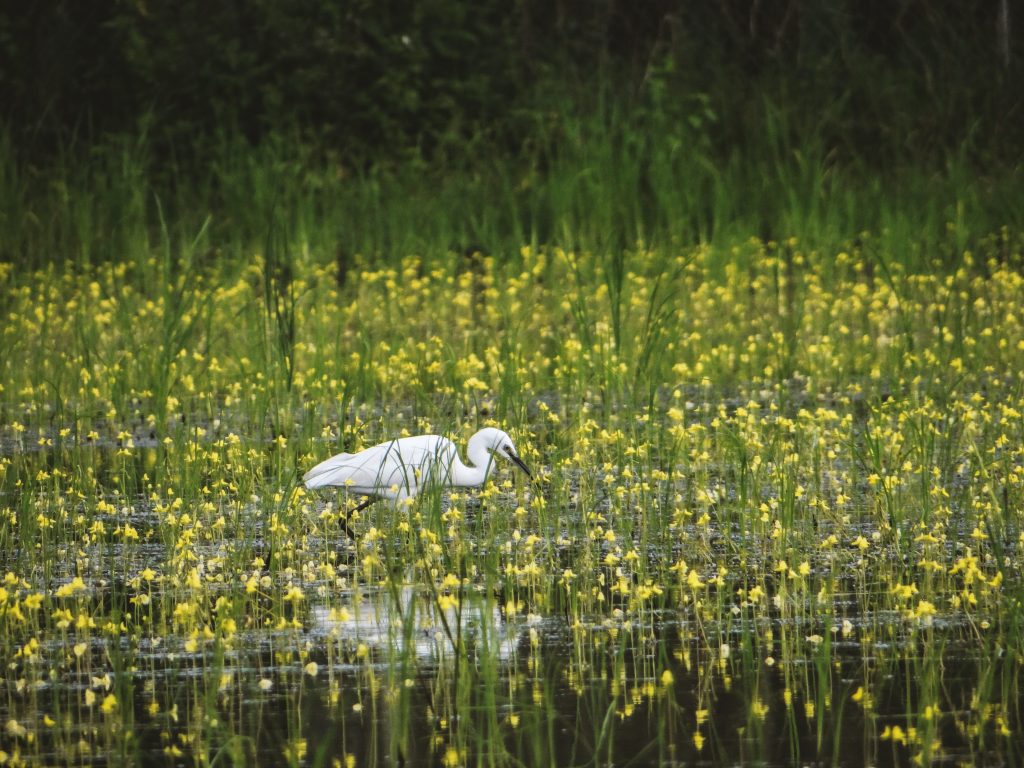
National Ecosystem Assessments include relevant information about the status of wetlands, drivers of loss and their interlinkages to people. This information is important for policy-making in order to ensure the conservation and sustainable use of wetlands.
Many migratory birds rely on wetlands for food, rest, and shelter during their long journeys. From vast marshes to petite ponds, these havens for migrating birds come in all shapes and sizes. Water is the essential ecological attribute of wetlands and they are some of the planet’s most important ecosystems. Unfortunately, these precious ecosystems are becoming increasingly threatened around the world and so are the migratory birds that depend on them.
Some of the national ecosystem assessments supported by the National Ecosystem Assessment (NEA) Initiative bring up-to-date information on the status and drivers of loss of wetlands and make it available to decision-makers, thereby providing wider guidance to protect these sites now and in the future. As we celebrate World Migratory Bird Day 2023, under the theme “Water: Sustaining Bird Life”, let us look at how national ecosystem assessment in Vietnam and Ethiopia help policymakers and practitioners recognise the importance and multiple values of wetlands – a crucial habitat for migratory birds.
Vietnam’s national ecosystem assessment launched in 2022 identified wetland ecosystems as one of the three main ecosystem groups within the country, having the highest levels of biodiversity and biological productivity and making significant contributions to the economy and social welfare. The report provided significant information and data to give an overall picture, highlighting the following key points: i) current status and trends of wetlands and their services; ii) contributions to socio-economy; iii) drivers and pressures to changes in wetland ecosystem services and its impacts on the socio-economy; iv) future plausible scenarios for ecosystems and their services; and (v) evaluation of the legal and institutional framework on biodiversity and ecosystem services including impacts, gaps and some recommendations to enhance ecosystems and their services. The assessment revealed that wetland ecosystems such as rivers, streams, lakes, reservoirs and estuarine areas are degraded and biodiversity has been reduced; the peat swamp is lower in area and in the thickness of the peat layer; natural tidal flats are affected; lagoons are degraded in varying degrees; seagrass beds are decreasing in area.
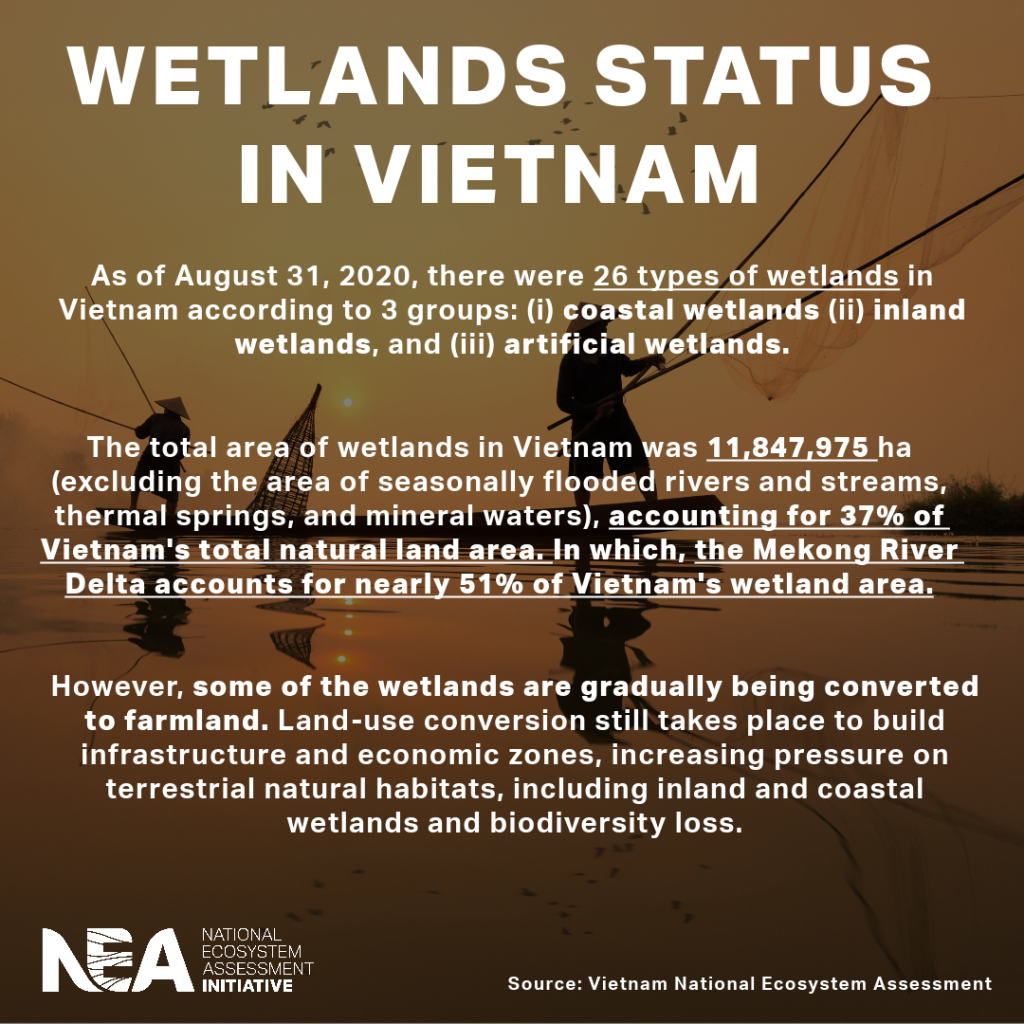
Looking forward, the national ecosystem assessment developed four future plausible scenarios for ecosystems and their services with proposed measures for proactive management. The assessment acknowledged that existing policy measures have made significant contributions to maintain and enhance wetland ecosystems. It proposed a pilot policy on payments for wetland ecosystems services which must include appropriate benefit-sharing mechanisms between service users and service providers; a support mechanism; and payment rates of users for each type of service.
Reference: The Center for Biodiversity Conservation of the Vietnam Union of Science and Technology Associations and the Institute of Strategy and Policy for Natural Resources and Environment of the Ministry of Natural Resources and Environment (2022) Vietnam National Ecosystem Assessment. Hanoi, Vietnam.
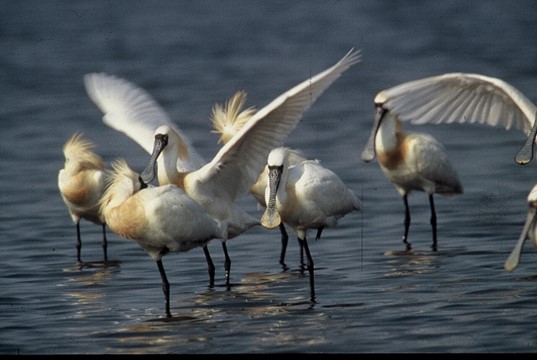
Additionally, the national ecosystem assessment report of Ethiopia noted that the country is endowed with substantial wetland ecosystems. These ecosystems are very important areas for biodiversity providing habitat for at least 25% of Ethiopia’s avifaunal diversity and hosting several other megafauna. The report revealed that the wetlands in Ethiopia are degrading at rapid rate due to the over exploitation of the resources by human activities. Furthermore, the biodiversity in these ecosystems is rapidly declining. A low level of community awareness of wetland conservation is one of the significant findings reported by different researchers. The assessment emphasised that exemplary indigenous practices, such as the Konso community, Ethiopian Orthodox Church forest conservation practices, and the Irreechaa festivity areas, provide opportunities to expand wetland and aquatic resource conservation. It concluded that at different scales, the legislative development and organisational reforms have played their role in reducing environmental challenges, including issues of wetlands addressed along with other policy and regulatory instruments. However, further interventions to reform and implement are essential to address wetlands challenges in Ethiopia.
Reference: Ethiopian Biodiversity Institute (2022) Ethiopia National Ecosystem Assessment. Addis Ababa, Ethiopia.
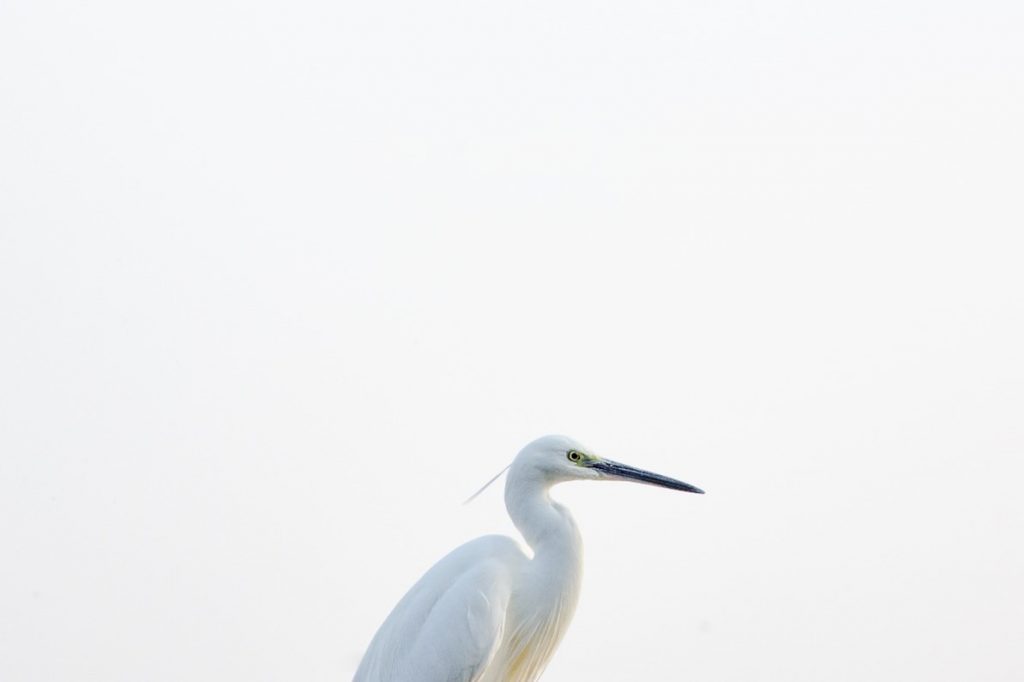
Ecosystem assessments in Vietnam and Ethiopia have played a significant role in synthesizing and communicating complex information about wetland ecosystems in these countries, meeting the information needs of policymakers and stakeholders of relevant sectors to counter ecosystem degradation and forestall ecosystem collapse. As we honour the remarkable journeys of migratory birds, let us recognise the ecological importance of wetlands and the need to protect them.
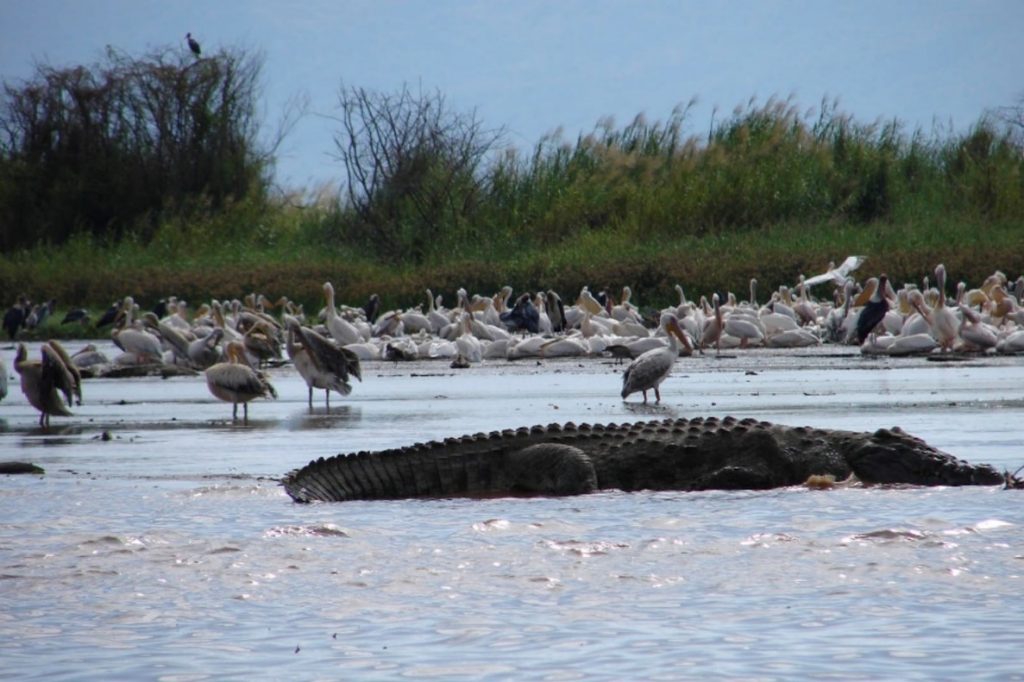
World Migratory Bird Day is observed annually each May and October, to coincide with the cycle of migration. It is an annual awareness-raising campaign highlighting the need for the conservation of migratory birds and their habitats. It has a global outreach and is an effective tool to help raise global awareness of the threats faced by migratory birds, their ecological importance, and the need for international cooperation to conserve them.
The National Ecosystem Assessment Initiative (NEA Initiative) at UNEP-WCMC is part of the Biodiversity and Ecosystem Services Network (BES-Net), working in partnership with UNDP and UNESCO. Financial support for the NEA Initiative is being provided by the International Climate Initiative (IKI) of the Federal Ministry for the Environment, Nature Conservation, Nuclear Safety, and Consumer Protection of the Federal Republic of Germany, the Norwegian Environmental Agency, the Japan Biodiversity Fund, and SwedBio.